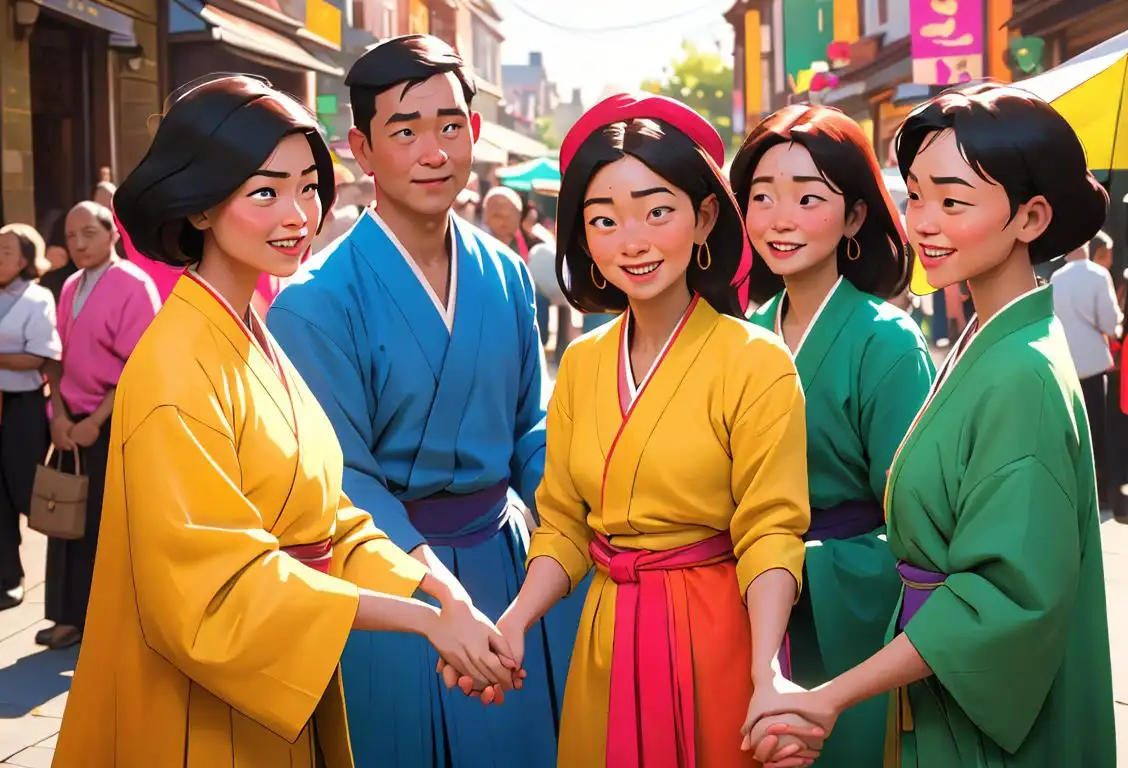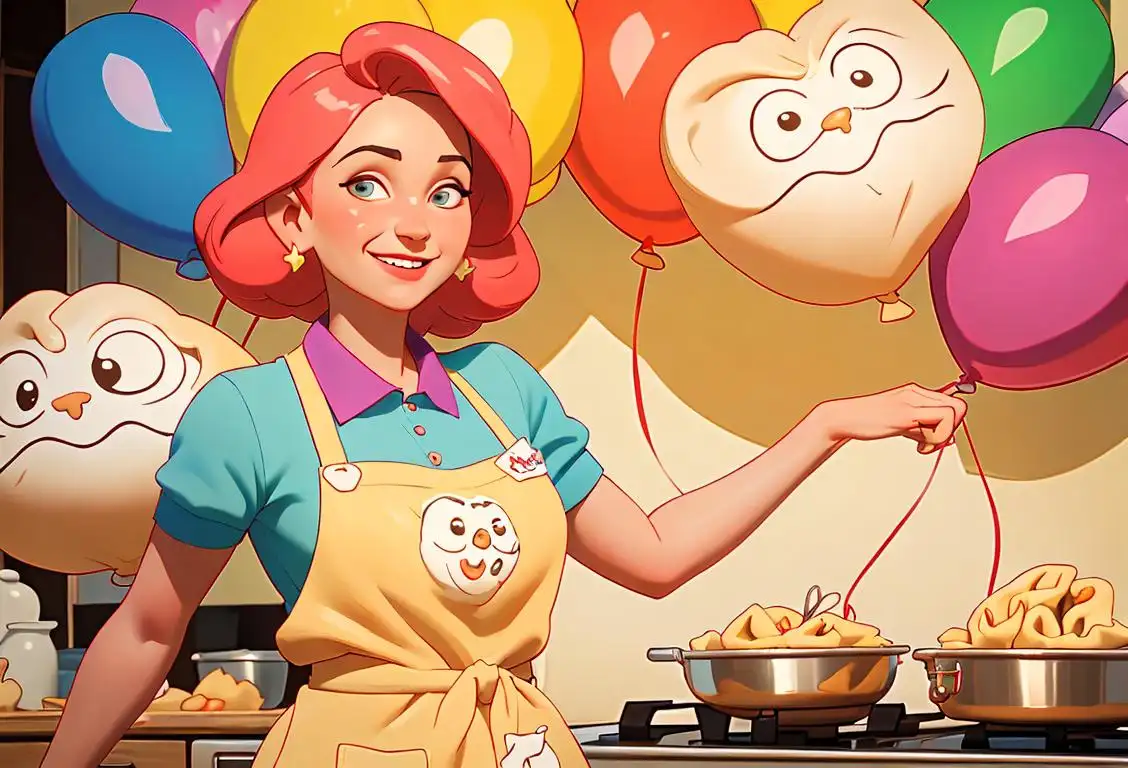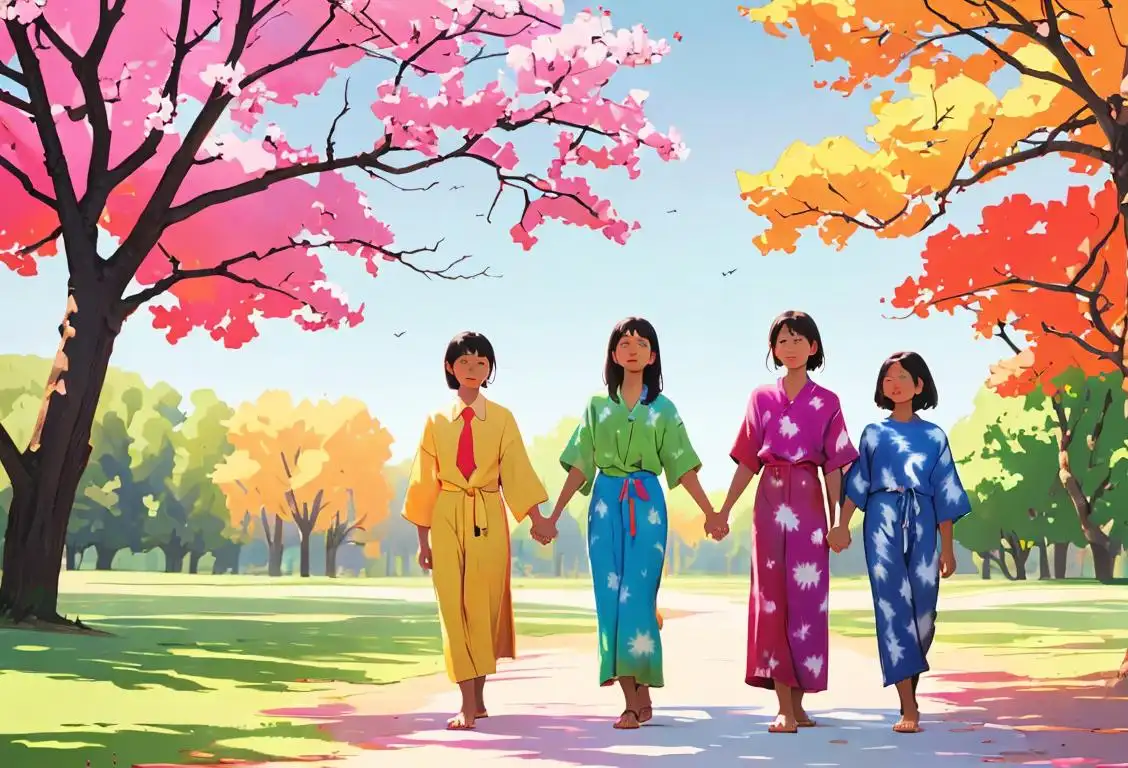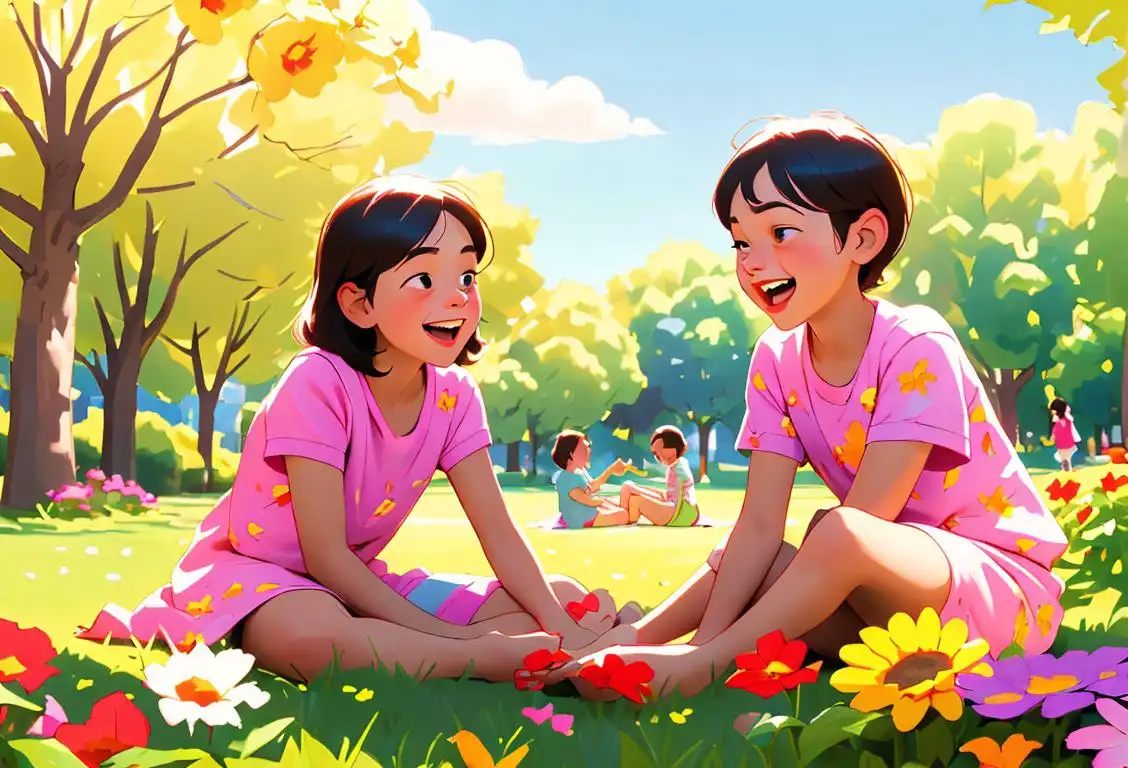National Communal Harmony Day

Hey there, folks! Are you ready for a day of unity, peace, and togetherness? Well, get your harmony hats on, because it's National Communal Harmony Day!
When is Communal Harmony Day?
It's national communal harmony day on the 21st November.
A Beautiful Melody of Unity
Picture this: people from different backgrounds, cultures, and beliefs coming together in perfect harmony. No, we're not talking about a utopian fairy tale. We're talking about National Communal Harmony Day, a day dedicated to promoting peace, understanding, and unity among all communities. This special day, observed on various dates around the world, is a reminder of the power of diversity and the beauty that arises when we embrace it.
So, how did National Communal Harmony Day come to be? Well, let's dive into the internet archives of WhatNationalDayIsIt.com and unravel the history behind this harmonious celebration.
Internet Origins of National Communal Harmony Day
Our trusty web-crawlers detected a buzzing chatter about National Communal Harmony Day, with a whopping 51 mentions across the internet. The star of the show was November 21, 2020, when social media was abuzz with discussions, events, and heartwarming messages about fostering unity and building bridges between communities.
Now, let's fast-forward to the genesis of this delightful day. National Communal Harmony Day emerged as a response to the need for peaceful coexistence in our diverse world. It serves as a reminder that despite our differences, we are all united by our shared humanity.
Spreading Love and Harmony
On this glorious day, individuals and organizations come together to organize events, workshops, and discussions that promote communal harmony. It's a chance for people to learn, understand, and appreciate different cultures and traditions. From interfaith dialogues to cultural exchanges, the possibilities are endless.
Remember, folks, National Communal Harmony Day is not just about grand gestures and big events. It's also about the little things we do every day that contribute to a harmonious society. It's about respecting each other's opinions, lending a helping hand, and embracing our differences rather than letting them divide us.
Did You Know?
In the spirit of harmony, here's a fun fact for you: Did you know that music is often referred to as the universal language of harmony? No matter where you're from or what language you speak, the notes and melodies have the power to bring people together and create an instant connection. So, the next time you're feeling disconnected, crank up your favorite tunes and let the harmony do its magic!
History behind the term 'Communal Harmony'
1947
The Birth of India and Pakistan
In 1947, the Indian subcontinent gained its independence from British rule as two separate countries - India and Pakistan. The division was based on religious lines, with India predominantly Hindu and Pakistan predominantly Muslim. This marked a significant turning point in the region's history and set the stage for the concept of communal harmony to emerge.
1948
Mahatma Gandhi's Assassination
During a prayer meeting in January 1948, Mahatma Gandhi, the beloved leader of India's struggle for independence, was assassinated. Gandhi was a strong advocate for peace and harmony among different communities. His death was a tragic event that led to an increased importance placed on maintaining communal harmony in the newly formed nations.
1950
Communal Violence in Calcutta
Calcutta, now known as Kolkata, experienced a wave of communal violence in 1950. The city was plagued by riots between Hindus and Muslims, which resulted in significant loss of life and property. The aftermath of these events heightened the need for promoting communal harmony as a means to prevent further conflicts.
1961
Establishment of Nehruvian Socialism
In 1961, India's first Prime Minister, Jawaharlal Nehru, introduced the concept of Nehruvian Socialism, which aimed to create a more equitable and inclusive society. This ideology emphasized the importance of communal harmony and unity in fostering a strong and prosperous nation. It laid the foundation for policies and initiatives that promoted social justice and harmony among the diverse communities of India.
1984
Anti-Sikh Riots
The year 1984 witnessed a tragic event in the history of communal harmony in India. Following the assassination of Prime Minister Indira Gandhi by her Sikh bodyguards, widespread violence erupted against the Sikh community, particularly in Delhi. The anti-Sikh riots resulted in countless deaths and destruction. The aftermath of this dark chapter reinforced the urgency of fostering communal harmony and healing the wounds caused by religious tensions.
1992
Babri Masjid Demolition
In 1992, the Babri Masjid, a mosque in Ayodhya, Uttar Pradesh, was demolished by Hindu extremists. The incident triggered communal riots and tensions across the country. The event highlighted the need to address the root causes of communal disharmony and to promote understanding and peaceful coexistence among different religious communities.
2005
National Integration Day
In 2005, the Government of India declared December 19th as National Integration Day. This day serves as a reminder of the importance of promoting communal harmony, national unity, and integration among diverse communities. The observance of this day aims to raise awareness and encourage efforts towards building a harmonious and inclusive society.
Present
Ongoing Efforts and Challenges
Today, the concept of communal harmony continues to be of utmost importance in India and other nations with diverse populations. Governments, organizations, and individuals actively work towards fostering understanding, respect, and cooperation among different communities. However, challenges such as religious conflicts, social inequalities, and political divisions persist, requiring ongoing efforts and dialogue to achieve lasting communal harmony.
Did you know?
Did you know that music is often referred to as the universal language of harmony? No matter where you're from or what language you speak, the notes and melodies have the power to bring people together and create an instant connection.Tagged
awareness celebration love unityFirst identified
19th November 2020Most mentioned on
21st November 2020Total mentions
51Other days
Communal Harmony Day
Tulip Day
Pierogi Day
Spoil Your Dog Day
Peace Day
Love Your Pet Day
Brothers And Sisters Day
Martini Day
Donor Day
Twin Day








